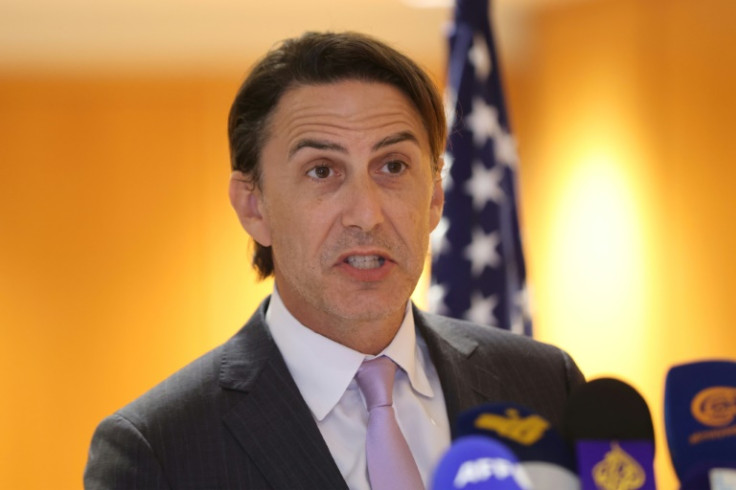US Envoy Urges Lebanon, Israel To Agree Land Border

US envoy Amos Hochstein who oversaw a maritime border deal between Lebanon and Israel, countries technically still at war, said Thursday it was time to delineate their land border also.
"It's time for us to review the framework, and the framework envisioned... to achieve an outcome of a maritime boundary and to work on the land peace as well," Hochstein told reporters in Beirut.
Hochstein is US President Joe Biden's special coordinator for global infrastructure and energy security.
Last October, after lengthy mediation, he brokered what Biden called the "historic" maritime accord between Israel and energy-starved Lebanon, which have no diplomatic relations.
The deal paved the way for both countries to exploit offshore gas reserves.
On August 16, French firm TotalEnergies said a drilling rig had reached Lebanese waters ahead of exploration for gas, months after the landmark accord was signed.
Last Thursday Lebanon began exploratory drilling on Block 9, the site of the Cana field, part of which is in Israeli territorial waters.
The authorities in Lebanon are counting on the presence of natural resources to help battle an economic crisis that has gripped the country since 2019.
"Over the last couple of days, I've been here to listen to the views of the Lebanese government, to go down south and see by myself the Blue Line and the surrounding areas to understand and learn more about what is needed in order to be able to potentially achieve an outcome," Hochstein said on Thursday.
After Israeli forces pulled out of southern Lebanon in 2000, ending 22 years of occupation, the United Nations drew a "blue line" delineating the border between the two countries.
South Lebanon is a bastion of the Iran-backed Shiite movement Hezbollah, and the area has seen sporadic clashes.
The US envoy also called on Lebanon to elect a new president to implement reforms that could open the way for international aid.
Lebanon been without a president since Michel Aoun's term ended in October last year, with neither of the two main blocs -- Hezbollah and its opponents -- having the majority required to elect one.
"I am impatient about the pace of reforms and I am disappointed by all the lost opportunities," Hochstein told reporters.
During his trip, he went by helicopter to the ancient site of Baalbek in eastern Lebanon, also a Hezbollah stronghold.
Israel and Hezbollah fought a 34-day war in 2006 in which more than 1,200 people, mostly civilians, died in Lebanon and 160, mostly military, were killed on the Israeli side.
© Copyright AFP 2025. All rights reserved.





















